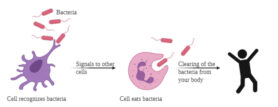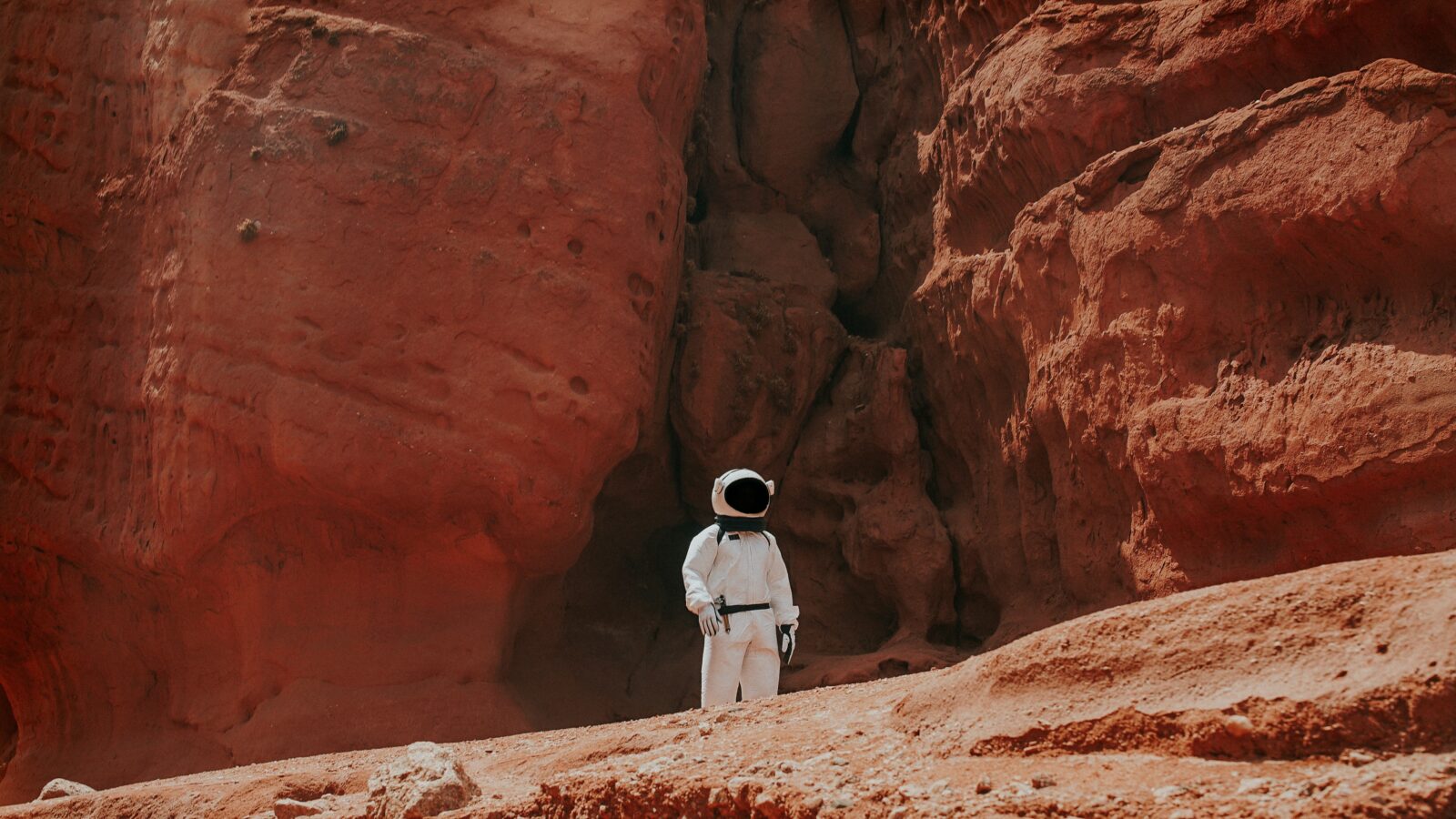Our Life on Mars
Sick on Mars
In 2033 the time has come, at least according to some space organizations, then the first people will set foot on Mars. But the moment the first humans land and settle on the planet, the first problems will also arise, because life on the red planet is not without danger to your health.
Sick of Mars
The first thing you might think about when it comes to getting sick is, just like on Earth, that you contract a disease on Mars from a bacteria or virus that lives there. However, Inge Loes ten Kate reassures us: “There is no evidence that there are life forms and for the time being there is no evidence that there have been life forms”. Inge Loes is an astrobiologist at the University of Utrecht and is interested in how life can and did originate in the past. While there may be no evidence of life on Mars, there are other things that can make us sick there. Inge Loes gives an example of perchlorate. This is a substance that is very similar to salt and is also present on earth. But on Mars, this is found in higher concentrations in the ground. People can come into frequent contact with perchlorate because it is present in food. This can increase the risk of cancer, for example. So if we as humans are going to live on Mars, we have to be very careful about what we eat and touch on this red planet, because there are more than enough things that could make us seriously ill.
Sick by your own body
Besides substances on Mars itself, our own body can also make us sick. An American study led by Richard Simpson shows that your immune system works less well during a long stay in space. This has various causes, such as the lesser gravity that is present on Mars. It is problematic that your immune system works less well. Because the immune system is your body’s army and protects you against all kinds of things such as bacteria and viruses, how this works is shown in figure 1. It is therefore very important that your immune system works properly, otherwise you will get sick. But while you are away from Earth, the flu can make you much sicker because your own army is not working properly. So we have to ensure that everything that goes to Mars is properly cleaned so that no unwanted guests come along and that the people themselves are also healthy.

Image 1: Mechanism of the immune system when it encounters a bacteria. Source: BioRender
Unfortunately, we cannot keep all pathogens away. Because right now there are about a trillion (that’s 12 zeros!) Bacteria and viruses living in your body. The immune system keeps a close eye on all of these so that they don’t attack you. But because your immune system works less well in space, this task is also performed less well. For example, Satish K. Mehta has shown that illnesses that you get as a child, such as chicken pox, can come back when you are in space as an astronaut. But it then has slightly different symptoms, which is why it is now called shingles instead of chicken pox. You get itching and blisters on your skin as shown in figure 2. But you also get so-called nerve pain at the spots of the blisters. It is certainly not inconceivable that there are more things that seem harmless on earth, but that cause major problems in space. If you go to Mars, you should certainly not forget to bring your vaccinations and antibiotics.
Mental health
However, Angelo Vermeulen emphasizes, the psychological aspect of space travel and life on Mars should not be underestimated either. He is a biologist, artist and space systems researcher and participated in HI-SEAS Mission I in Hawaii in 2013. This is Mars mission simulation, in which he was in charge of the other astronauts. “We come from an era when we just wanted to keep people alive” Angelo says, but these days are in the past. With the longer periods people spend in space, the other, more social aspects must also be taken into account. Angelo says that during his mission he focused on providing a daily rhythm. As an example, Angelo tells that he made sure all members of the team were present at the different meals. In this way the atmosphere remains good and the productivity of the people high. So it is not that it is only diseases that you have to watch out for in space, your mental health is also important.
To Mars or not?
Yet both Inge Loes and Angelo give a clear “yes” as answer to the question whether they would like to go to Mars themselves. Because this is an opportunity that you will not simply pass up, even if there is a high risk of getting sick on Mars. Both do admit that before living on Mars is possible there are still a number of challenges to our health. But they see enough solutions to the various problems. Maybe you as a future astrobiologist or space researcher can help solve the problems!

